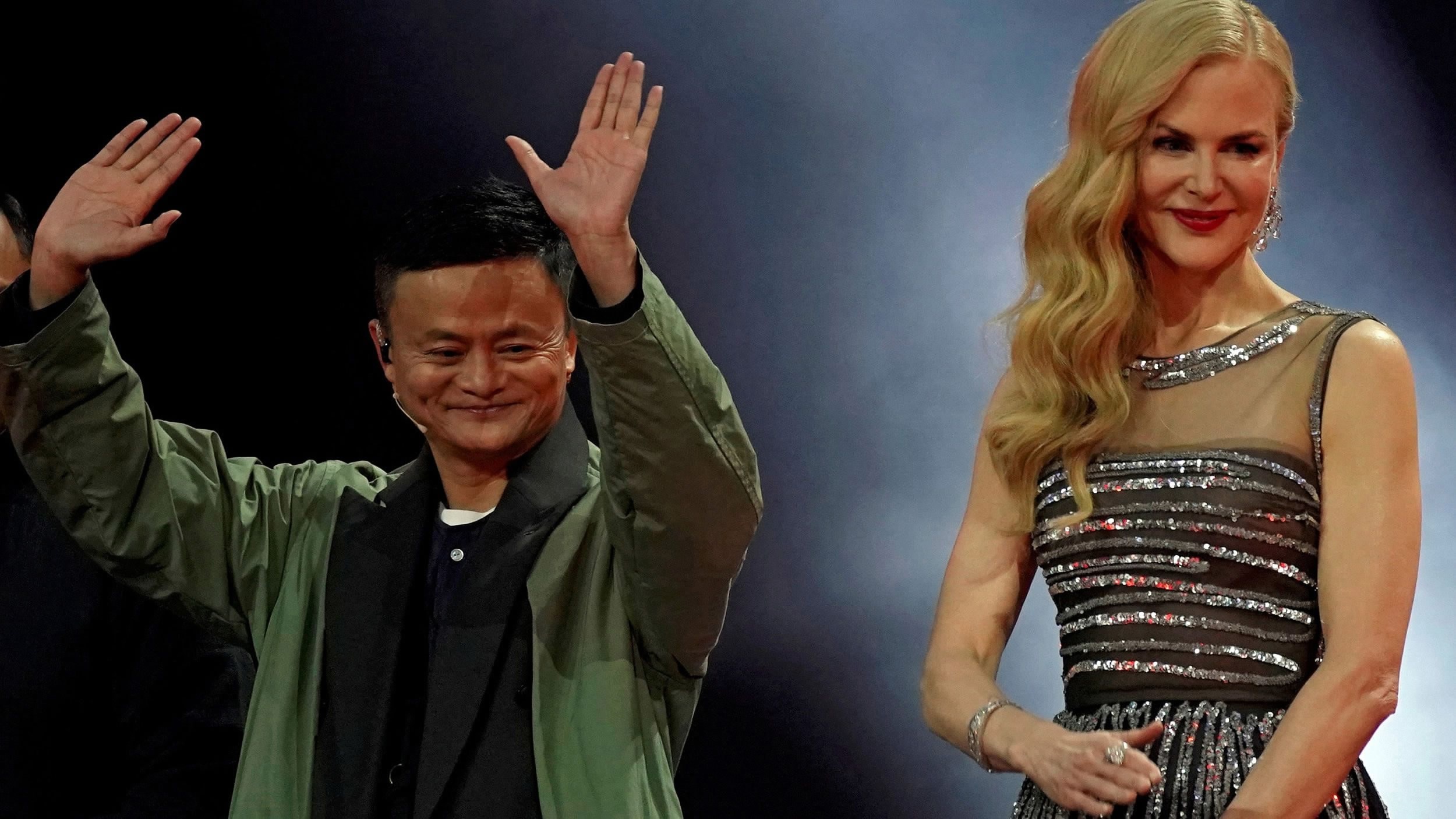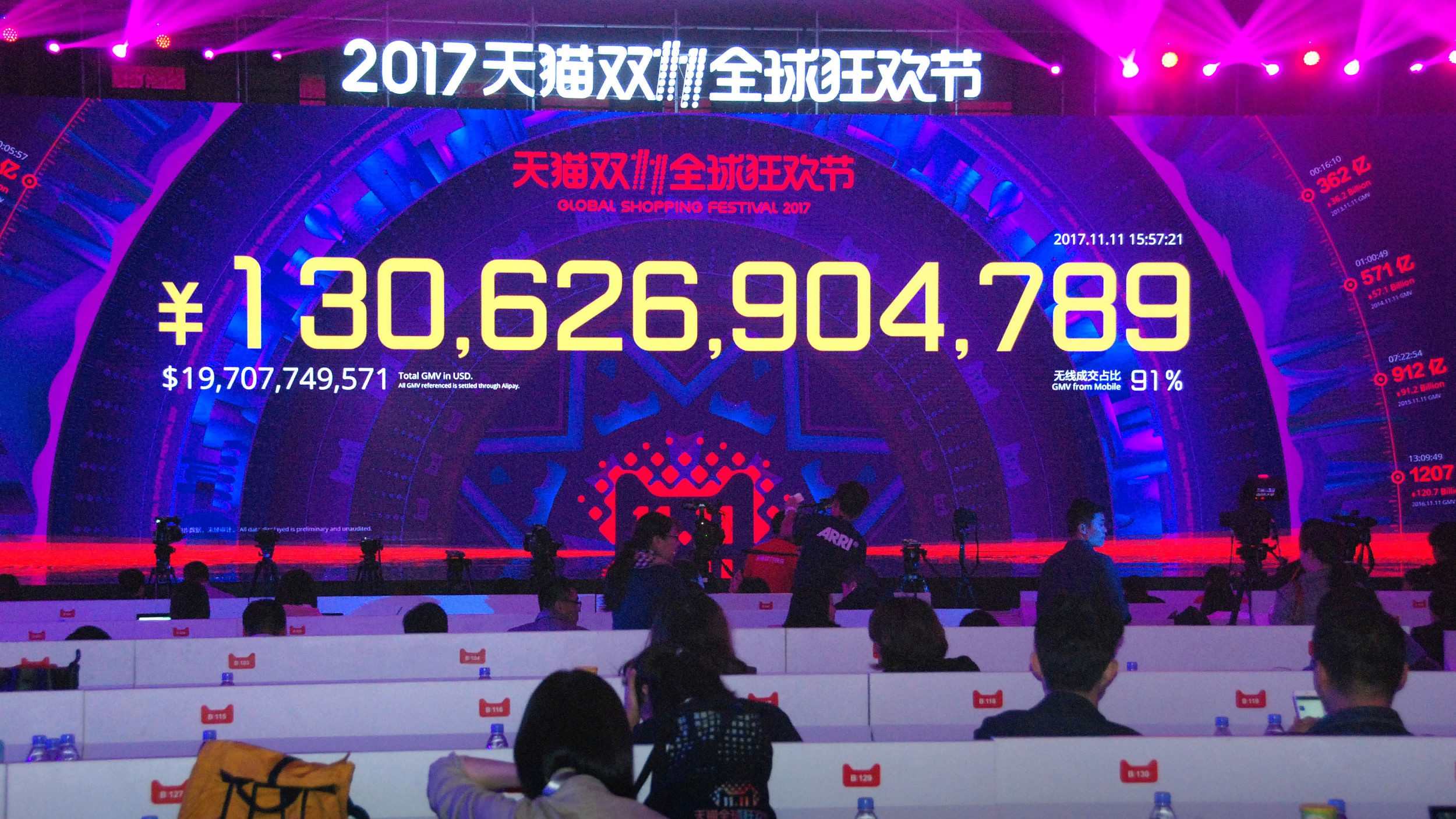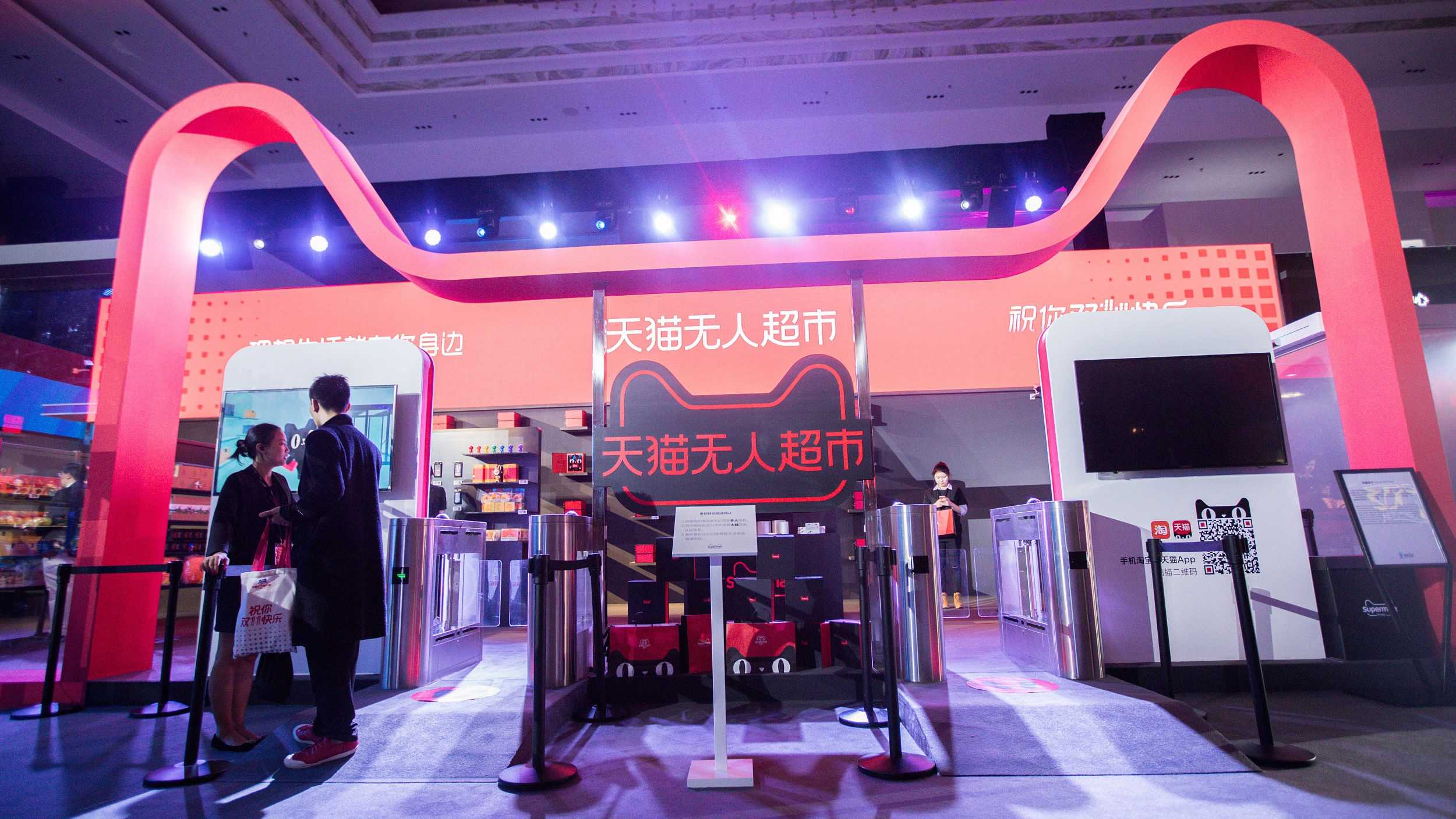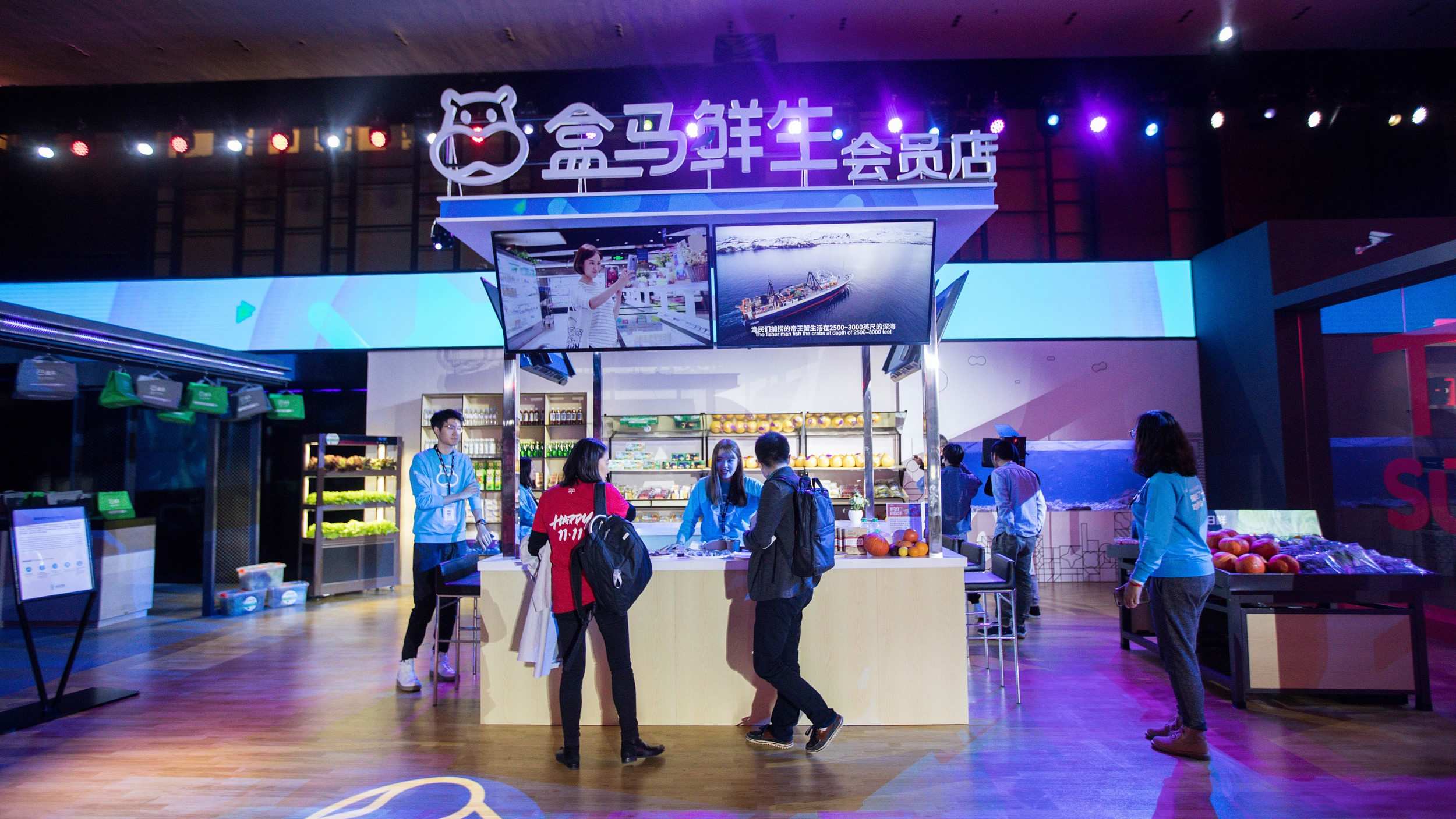
Business
09:41, 12-Nov-2017
China shopping festival smashes record with $25 billion haul
CGTN

Online shoppers with Alibaba set a new Singles' Day record of 25.3 billion US dollars this year, the Chinese e-commerce giant reported.
Saturday's sales extravaganza registered 168.2 billion yuan, 39 percent up on the company's own record of 120.7 billion yuan last year, cementing Singles’ Day as the world’s biggest shopping event.
Once a celebration for China’s lonely hearts, Singles’ Day, also known Double 11 (Nov. 11) Day, has has become an annual 24-hour buying frenzy that exceeds the combined sales for Black Friday and Cyber Monday in the United States, and acts as a barometer for China’s consumers.
The country's clout in mobile payments and intelligent logistics has bolstered the stellar growth, said Matthew Crabbe, Asia Pacific research director at consultancy Mintel.
For instance, popular mobile wallet Alipay processed deals at a peak rate of 256,000 transactions per second in some 200 countries and regions, according to Alibaba, while robots and algorithms accelerated parcel distribution even in the most complex road networks at home and abroad.

A screen shows Chinese e-commerce giant Alibaba Group's 'Singles' Day' discount campaign results during Saturday's shopping. /VCG photo
A screen shows Chinese e-commerce giant Alibaba Group's 'Singles' Day' discount campaign results during Saturday's shopping. /VCG photo
The event began soon after a star-studded event in Shanghai late on Friday. As midnight hit, a deluge of pre-orders helped drive a billion dollars of sales on Alibaba’s platforms in the first two minutes and 10 billion US dollars in just over an hour.
"In terms of scale it just dwarfs any other event out there," said Ben Cavender, Shanghai-based principal at China Market Research Group.
At just past the halfway mark, the headline gross merchandise volume swept past last year’s dollar total just shy of 18 billion US dollars. Shortly afterwards, sales surpassed the 2016 total in the local currency.
The event gets shoppers around China scouting for bargains and loading up their online shopping carts, while deliverymen - and robots - brace for an estimated 1.5 billion parcels expected over the next six days.
"This is a big event for China, for the Chinese economy," Joseph Tsai, Alibaba’s co-founder and vice chairman, said. "On Singles’ Day, shopping is a sport, it’s entertainment."
Tsai said rising disposable incomes of China’s "over 300 million middle-class consumers" was helping drive the company’s online sales - and would continue. "This powerful group is propelling the consumption of China," he said.

Tmall new conception store, a type of offline shop that's gaining traction among e-commerce operators. /VCG photo
Tmall new conception store, a type of offline shop that's gaining traction among e-commerce operators. /VCG photo
The final total – more than the GDP of Iceland or Cameroon – leaves other shopping days in the shade. Cyber Monday in the United States saw 3.45 billion dollars in online sales last year.
Investors closely watch the headline number, though some analysts say the way it is calculated is too opaque.
Last year, the sales number rose by nearly a third at the eighth iteration of the event - though that was slower than the 60 percent increase logged in 2015.
Slower growth?
At Alibaba’s Friday night gala, the company’s co-founder and chairman, Jack Ma, hosted guests including the actress Nicole Kidman, singer Pharrell Williams and Chinese musicians and film stars such as Zhang Ziyi and Fan Bingbing.
The excitement around the shopping blitz, however, masks the challenges facing China’s online retailers such as Alibaba and JD.com Inc, which are having to spend more to compete for shoppers in a broader economy where growth is slowing.
"A lot of the lower hanging fruit has been picked and there’s increased competition for a share of consumer spending," said Matthew Crabbe, Asia Pacific research director at Mintel. The sale did though beat his forecast of 20 percent growth.
Online retailers were being forced to push offline as well as overseas to attract new shoppers, and the overall online retail market was close to "saturation", raising questions about whether current rapid growth could be sustained.
"They’re having to spill over out of the purely online realm into the wider consumer market," Crabbe said.
This has sparked deals to buy bricks-and-mortar stores in China, and overseas tie-ups especially in Southeast Asia. Technology, too, has been key, with virtual reality dressing rooms and live fashion shows to attract shoppers.

Ali's Hema Supermarket, which seeks to create a seamless blend of online and offline shopping experience,/VCG photo
Ali's Hema Supermarket, which seeks to create a seamless blend of online and offline shopping experience,/VCG photo
Alibaba also said it had turned 100,000 physical shops around China into "smart stores" for this year’s event. Goods perused by people at the stores, but then bought and paid for on Alibaba’s platforms, were added towards the sales total.
China Market Research Group’s Cavender said brands were also increasingly making smaller price cuts to avoid "margins getting killed", and were often asking for deposits in advance. In previous years, prices were often halved.
Fu Wenyue, a 23-year-old dresser in Shanghai, said offers this year were smaller but more "personalized" as brands used big data to hone their targets. Fu spent 4,000 yuan (603 US dollars) on clothes, cosmetics and kitchen utensils in pre-event sales, and kept shopping on the day.
"In actual fact, I think I spent even more than I did last year," she said.
Source(s): Reuters
,China Daily

SITEMAP
Copyright © 2018 CGTN. Beijing ICP prepared NO.16065310-3
Copyright © 2018 CGTN. Beijing ICP prepared NO.16065310-3